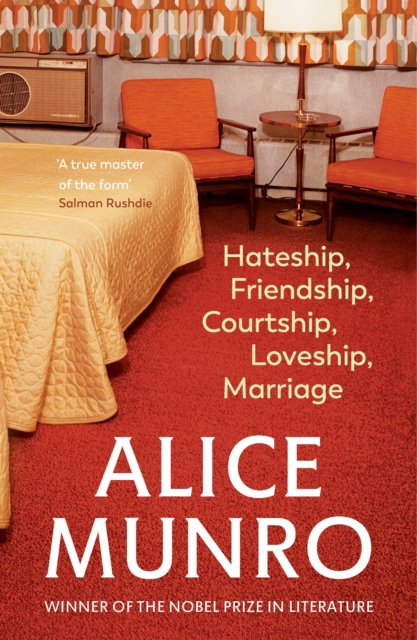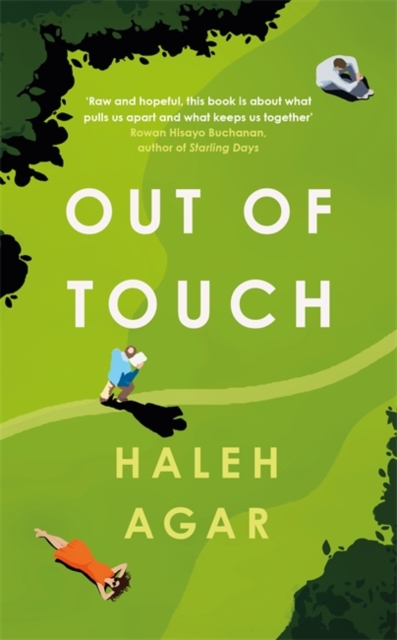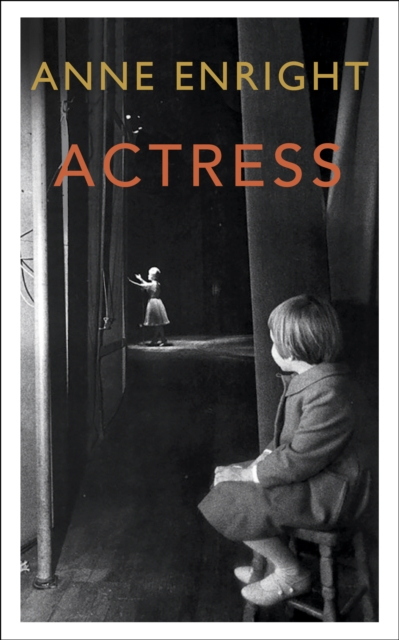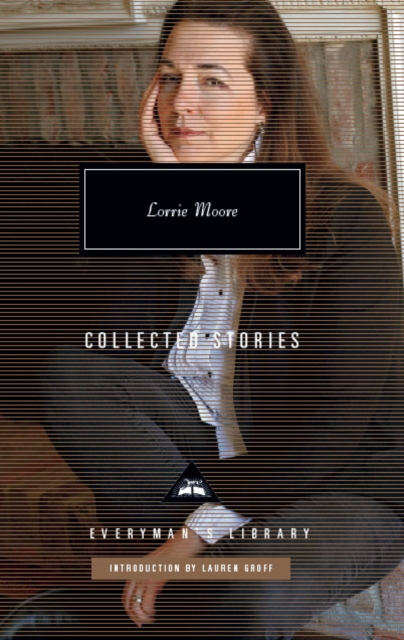Haleh Agar discusses her debut, Out Of Touch
Noor
“I want to learn how to do this, tell stories that make people feel like they are seen.” - Haleh Agar.
And learn she did! Haleh Agar’s debut novel Out Of Touch as a phenomenal feat, and we’re thrilled to have had a chance to (virtually) discuss the book and her writing!
What a time to publish your first book - how are you feeling just now?
Up and down! It’s all so new and strange, isn’t it? I find that if I take the time to meditate I’m in a much better place for the day.
When and why did you become a writer?
A few years ago, I read Alice Munro’s short stories for the first time and felt incredibly inspired. I love her sparse style of prose that convey so much. Her observations are so sharp and resonate deeply with me—the way she writes about relationships, family, women. I thought—I want to learn how to do this, tell stories that make people feel like they are seen.
What inspired you to write Out of Touch?
I’ve always loved stories about families because these are the people we are ultimately stuck with— we can’t choose who our family is. There is bound to be tension in such intense relationships. The question of identity is always important to my work, and in this particular book, I look at how we define ourselves outside of family, but also, what we cannot run away from.
Writing about siblings and sibling relationships in a realistic way can be hard. Can you talk about how it was writing about siblinghood?
I have two sisters, but no brother so it was interesting writing the relationship between Michael and Ava. I wanted to specifically look at how gender socialization can affect siblings who were raised by a father who quite frankly is a very toxic man.
Of all the characters in the book, which one do you relate to the most?
At this moment in my life, Layla. She’s a bit of a hypochondriac.
How do you think your characters would have fared in the pandemic?
I love this question! They’re all over-thinkers, trying desperately to control their circumstances, so likely, they wouldn’t be doing too well. Ava would be clinging to her self-help book about happiness. But the thing is, big life events like this pandemic can change us in ways that we never could predict. They might just think, as I do on some days, f*ck it— I can’t control my life, and find comfort in letting go of the need to control. With that being said, they’d all be washing their hands raw, as I’m doing now.
What do you think makes a good story?
For me, it’s a strong voice. When I come across a character-driven work with a voice that feels unique in its observations, I’m hooked.
How would you describe your writing style?
I’ve been told that my voice is contemporary and accessible. Like many authors I love to read, humour is important to me, as it allows me to explore heavy topics in a deeper way.
As you mentioned family is at the heart of this book, and so is reconnecting. At the moment, lots of people are reaching out to folk they may not usually keep in touch with. What do you think it is about big events that leads us to reconnect?
There’s nothing like the prospect of facing death to bring our priorities sharply into focus. I can understand why people are reconnecting and burying old grievances. We feel vulnerable, and realize that time is finite. Certainly, this is the case with Michael and Ava, when they are contacted by their father after twenty years.
Were there alternate endings you considered?
Absolutely! I’ve written many versions of the novel. The thing about creative writing, is that you often learn through the actual process and various drafts what the characters are like, and how things will pan out. Planning is great, but I give myself the flexibility of changing elements of the story as I go along.
What writers or individuals have shaped the way you write/ what you write?
As I mentioned earlier, Alice Munro is a huge influence on my work. Humour is very important to my writing style so authors like Lorrie Moore, and Anne Enright who so cleverly incorporate dark humour into their work are an inspiration.
What do you listen to when writing/have you got some favourite background music?
No music—I get distracted. I did get used to background noise though as I’d been writing in a co-working space since last May. I really miss it as I haven’t been back since the pandemic broke out. It was such a lovely thing, to walk into an office space, and speak to other people who were doing completely different things.
Linked Books

- title
- Hateship, Friendship, Courtship, Loveship, Marriage
- author
- Munro, Alice

- title
- Out of Touch : The heartbreaking and hopeful must read of Summer 2020
- author
- Agar, Haleh

- title
- Actress : LONGLISTED FOR THE WOMEN'S PRIZE 2020
- author
- Enright, Anne

- title
- Collected Stories
- author
- Moore, Lorrie, Groff, Lauren